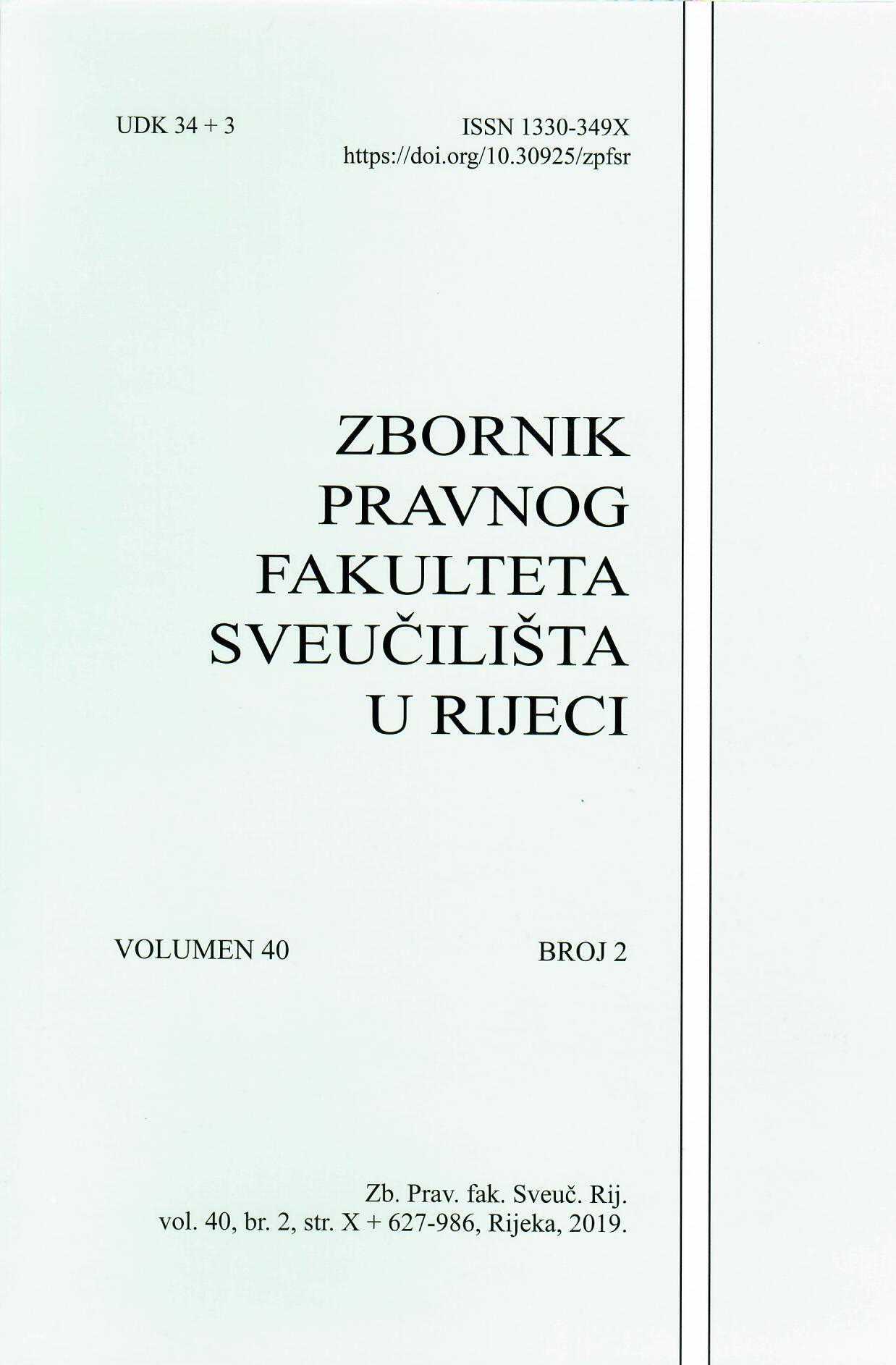CIVIL LIABILITY FOR BREACH OF MEDICAL STANDARD AND COMPLEMENTARY ECONOMIC EFFECTS
DOI:
https://doi.org/10.30925/zpfsr.40.2.3Keywords:
civil liability of physicians; due care; breach of medical standard; medical malpractice; health economicsAbstract
The research has confirmed that the very possibility of achieving a tort claim in the case of tort liability on account of medical malpractice represents per se a systemic incentive for a continual process of professionalisation of the healthcare service, i.e., the legal order impacts the quality standard of healthcare in terms of preventing undesired consequences of unprofessional medical procedures. The typical modality of breaching a medical standard is medical malpractice which regardless of typological characteristics appears in genere in the physician’s actions, contrary to the rules of the healthcare profession as well as its moral and ethical principles, as actions not conforming to standards in modern medical science, and which results in infringing on the patient’s health or life, meaning a breach of the right of personality. In determining medical malpractice, the courts will consider through a prism the physician’s actions in terms of medical treatment in concreto whereby the measure of behaviour is the normally careful physician in line with the average standard valid for physicians – the bonus pater familias standard. In that sense, Croatian positive law and the legal order ad comparandum, establish the fundamental obligations for physicians in the undertaking of medical treatment, and in particular stipulate the duty of acting with heightened care, all in line with the rules of the profession and customs – due professional care. Adherence to the mentioned standard minimises the risk of suboptimal treatment which is contrary to rules of the medical profession – contra legis artis, and whereby the legal, medical and economic components are preventively harmonised. Literal application of the negligence rule, i.e., the tort system and its associated rights and economic implications in ultima linea, leads to the situation where the possible tortfeasor (medical/healthcare institution) provides medical services under the regime of the optimal care standard given that the legal system views the standard of medical action as equal to the economic category of optimal patient care.
Additional Files
Published
How to Cite
Issue
Section
License
Collected Papers is an open access journal. Journal does not charge article processing charges (APC) to authors. It is licensed under CC BY-NC licence 4.0.
Collected Papers of the Law Faculty of the University of Rijeka" is an Open Access journal. Users are allowed to read, download, copy, redistribute, print, search and link to material, and alter, transform, or build upon the material, or use them for any other lawful purpose as long as they attribute the source in an appropriate manner according to the CC BY licence.
The papers published in "Collected Papers of the Law Faculty of the University of Rijeka" can be deposited and self-archived in the institutional and thematic repositories providing the link to the journal's web pages and HRČAK.
Upon acceptance of the manuscript for publication by this journal, the author can publish same manuscript in other journals only with the permission of the Editorial Board (secondary publication). A repeated publication should contain a notice as to where the manuscript was originally published.



